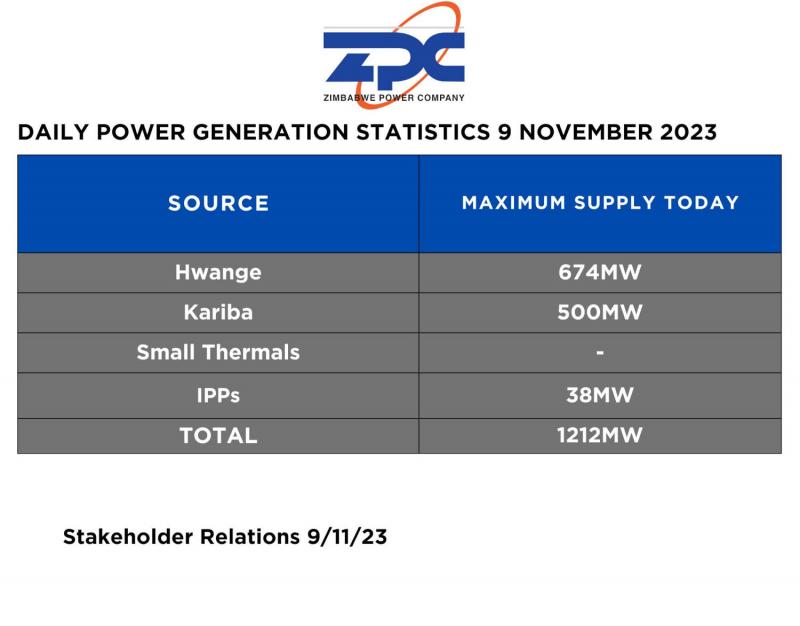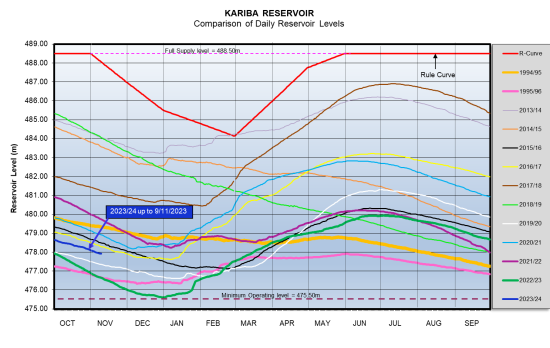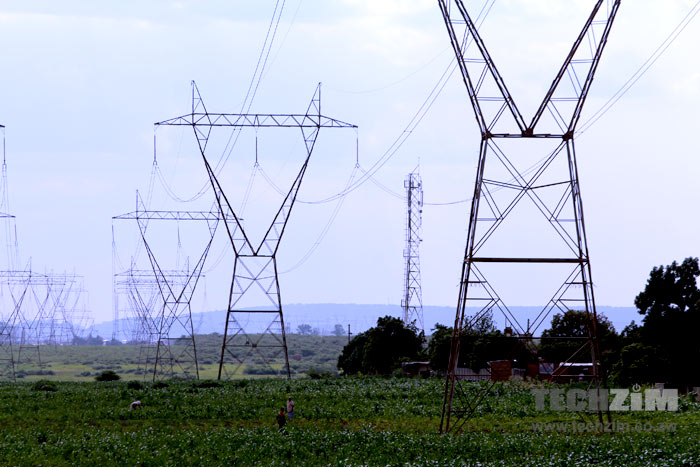There is no digital economy without electricity. We thought we had turned a leaf but it was only for a few months just before and after the elections. It’s just a coincidence, I’m sure.
So, we know that Unit 7 at Hwange took its 300MW under maintenance. The water levels at Kariba are also low, leading to low power generation. Is there any light at the end of the tunnel? What are the authorities saying?
The Minister of Energy, Edgar Moyo, recently gave us a little insight into what’s happening.
Demand v Supply
Peak electricity demand in the country is about 1850MW, yet supply has regularly been below 1300MW. That 550MW deficit is what’s causing us all this grief.
Today, the Zimbabwe Power Company reports the following power generation stats:

- Hwange – 674MW
- Kariba – 500MW
- IPPs – 38MW
- TOTAL – 1212MW
Hwange
We talked about Unit 7 undergoing maintenance. It is completely off the grid right now. The Minister says it will be back online in three weeks. So, mark your calendars, it should come back by the 1st of December.
This likely means Unit 8 will have to undergo its own one-month-long maintenance stint. The Minister didn’t say much about Unit 8. However, he did talk about the problem children, Units 1-6.
These units are old and are prone to break down. It appears something is finally being done about this. Said the Minister,
There is need to deploy new technology for units 1 to 6 …
As a result, the government is pushing for the rehabilitation of those units to be sped up, according to The Herald.
In the meantime though, the Minister says we should expect occasional breakdowns.
Kariba
Kariba should be the main power generation station but water levels have been falling over the years, curtailing its capacity.
ZESA executive chairman reminded us that the installed capacity there is 1050MW but we are running on an average of 300MW. He says we should think of it as ‘we lost 750MW’ for as long as the water situation remains.
The Zambezi River Authority, which is responsible for managing the Kariba waters says,
The Lake level is decreasing, closing the period under review at 477.92m (16.84% usable storage) on 9th November 2023, compared to 476.64m (7.89% usable storage) recorded on the same date last year.
You may recall that around this time last year, the situation was much worse. Then, Kariba had lower water levels and was producing less. On top of it, there was no Unit 7 or 8 at Hwange to talk about.
What we should note though is that the water levels at Kariba are falling by the day. In just the period from 27 October to 9 November, the reservoir went from 18.82% full to 16.84%.
It will only start to rise after a few months of rain. Historical data shows that the earliest it can start rising is in January.

Floating solar panels
Earlier this year we talked about floating solar panels and how we thought they should be deployed at Kariba. You can find out more about what this is all about by clicking this link: Zimbabwe should jump on floating solar panels, would benefit Kariba
I would like to believe, for our ego’s sake, that had something to do with the announcement we got from the ZESA executive chairman,
There are moves now to accelerate alternative technology, principally PV solar and there is a lot of investment waiting in the pipeline
He was talking about a floating solar panel project at Kariba. The Minister then told us that its past the ‘wishful thinking’ stage when he said,
Last week I was in India and we spoke to International Solar Alliance and they are going to send a team next year in January or February so they can assist us in the deployment of that technology.
This is exciting news folks.
Imports
You saw the 550MW deficit above. On top of it, we expect occasional breakdowns at Hwange and the water levels and electricity generation to keep falling at Kariba for at least two months.
We are importing some electricity to fill that gap. However, we need to increase our imports and the government says negotiations are underway to do just that.
ZESA owes over $100 million to regional power exporters. So, one wonders how successful they will be in opening new lines of credit.
Zeroing in on that $100 million figure reveals some frustrating truths. It shot up to that much during the run-up to the elections. So, the blissful period we experienced was really anchored on imports.
We all suspected that something was up because early in the year we were in darkness. Then as we got closer to the election date all our problems went away. Well, we simply opened lines of credit with power exporters and the trick was complete.
This is Zimbabwe, my friend. You better get used to shenanigans like these. So, we shall see if those imports come along. Or the floating solar panels. Or the rehabilitation at Hwange. Any promise made by this government should be taken with kilos of salt.
Also read:
UN approves Zimbabwe’s US$45 mil renewable energy programme
More companies apply to generate/ procure electricity. ZESA monopoly over?
Zim could meet 50% of electricity demand using solar by 2025, says govt. From which projects?

What’s your take?